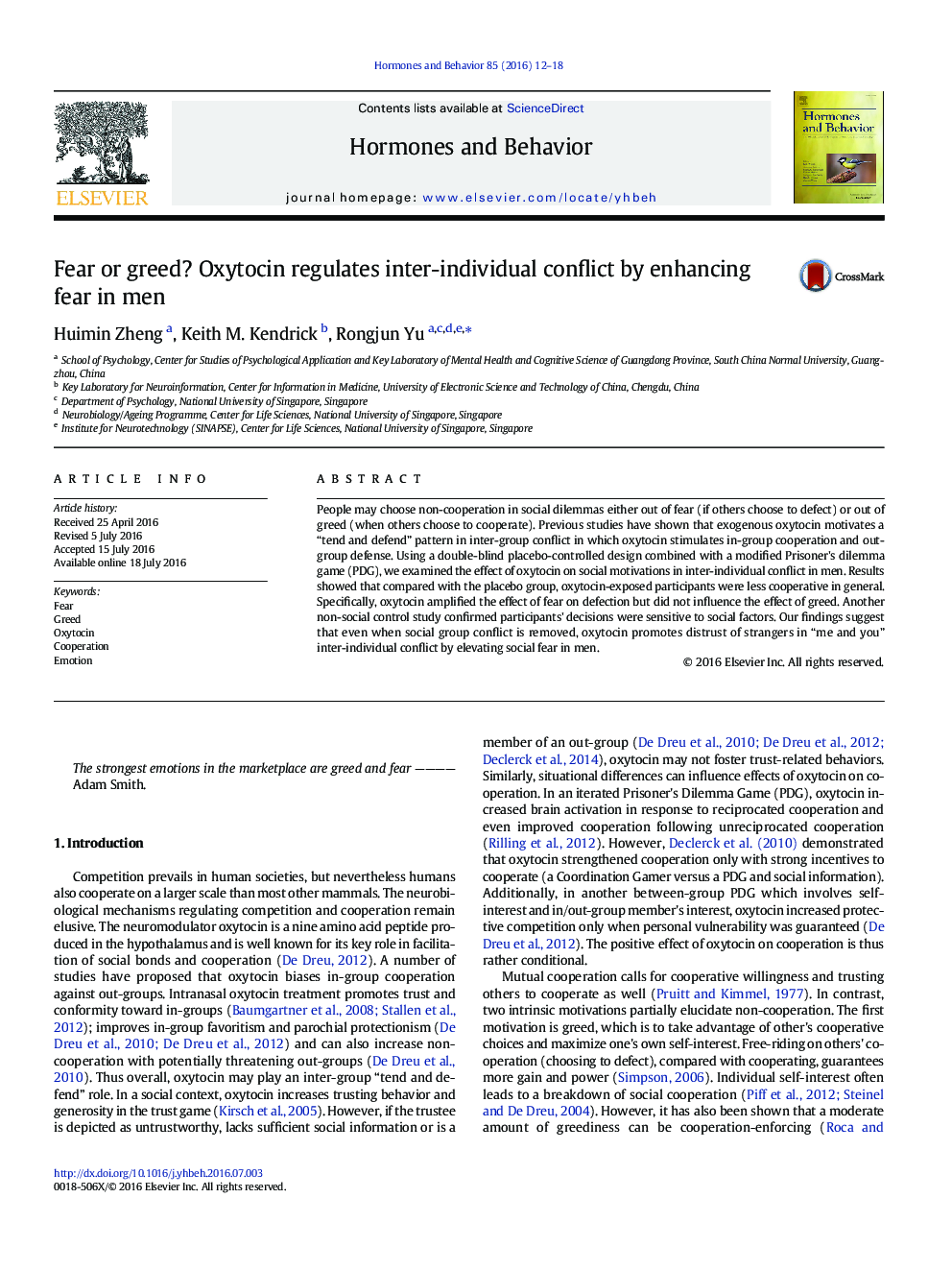| Article ID | Journal | Published Year | Pages | File Type |
|---|---|---|---|---|
| 323020 | Hormones and Behavior | 2016 | 7 Pages |
•Compared with the placebo group, oxytocin-exposed participants were less cooperative in general.•Oxytocin amplified the effect of fear on defection.•However, oxytocin did not influence the effect of greed.
People may choose non-cooperation in social dilemmas either out of fear (if others choose to defect) or out of greed (when others choose to cooperate). Previous studies have shown that exogenous oxytocin motivates a “tend and defend” pattern in inter-group conflict in which oxytocin stimulates in-group cooperation and out-group defense. Using a double-blind placebo-controlled design combined with a modified Prisoner's dilemma game (PDG), we examined the effect of oxytocin on social motivations in inter-individual conflict in men. Results showed that compared with the placebo group, oxytocin-exposed participants were less cooperative in general. Specifically, oxytocin amplified the effect of fear on defection but did not influence the effect of greed. Another non-social control study confirmed participants' decisions were sensitive to social factors. Our findings suggest that even when social group conflict is removed, oxytocin promotes distrust of strangers in “me and you” inter-individual conflict by elevating social fear in men.
